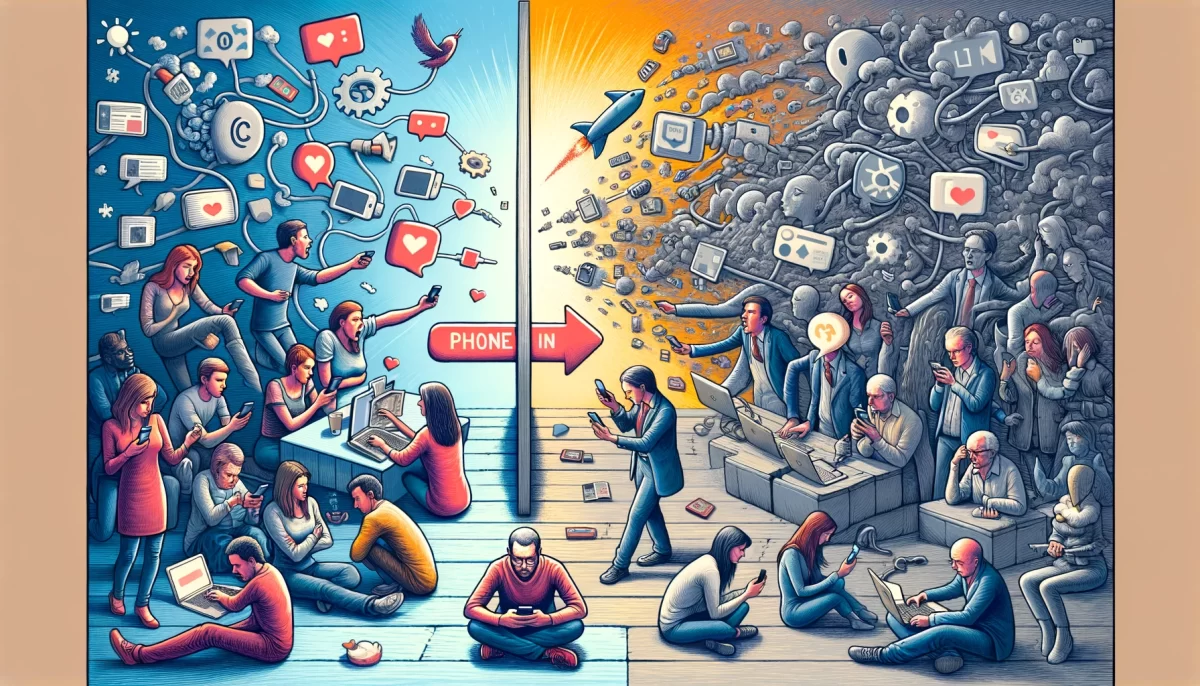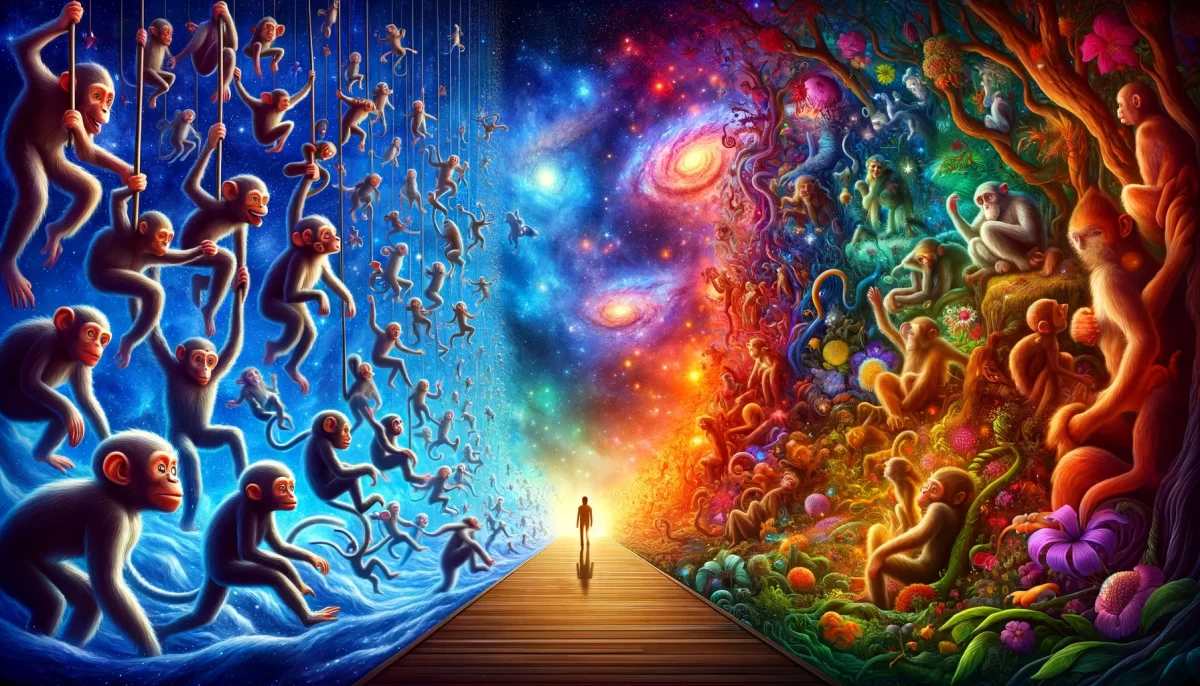Phoned In
In the old days we used to “phone it in,” but now we simply reblog.
Back then, we used our own voice, expressed our own opinions, and showed at least a MINIMUM of accountability. Nowadays, it’s so much easier to cut and paste popular opinion, just like it’s now simple to kill hundreds and thousands of people by remote control. So I wonder if people have lost the ABILITY to think for themselves or are we simply HYPNOTIZED by our own culture?
I realize that by writing this, I might come off sounding like a bitter old fogey who might be judged as hopelessly out-of-time to the point of irrelevance. Since I happen to BE an old fogey, I DON’T GIVE A CRAP, as is the old fogey’s prerogative.
Even so, I believe that there are still thoughtful people out there — even young ones — who resonate with my message. I believe that this is true of any communication. No matter the message, how it is construed or MISconstrued, there will ALWAYS be people who resonate.
That is why our world seems so divisive.
The thing is, sometimes the meaning get stripped away from the resonance, and cut and paste MOVEMENTS form like great waves. The boat begins rocking, then it rocks even more because people want to escape the rocking boat.
The “problem” is no longer that people are spun up about (CUT AND PASTE TOPIC HERE). The “problem” is that they are spun up, period. Now you’ll notice that I put “problem” in quotation marks. Perhaps this is not a “problem,” but rather the “natural” course of events.
Sometimes we’re better off letting something break rather than trying to fix it all the time. Some of our oft-amended documents, things like bibles and constitutions, are STILL mostly cut and paste, rather than being revamped to work with the new code.
Don’t you think the authors of those documents intended them to change over time? Other than a few kludgey workarounds, we’re still operating under the same cut and paste structures that we’ve faithfully followed for hundreds and thousands of years.
Does that seem SANE to you, or does it seem delusional? Is it not odd that people stand behind these hopelessly rigid documents while calling OTHERS delusional?
I have no problem with it either way, just wondering, that’s all. I believe that we are experiencing what we are experiencing because that’s precisely what we’re MEANT to experience. This perspective allows me to look at any situation and take POSITIVES away from it rather than negatives. We are changing, and change is ALWAYS good, even if it means the extinction of humanity as we know it. It would’ve happened sooner or later anyway, I don’t see what the big deal is.
I suppose I can afford such a laissez faire attitude because I have FAITH. I have faith that we’re IMAGINING all of this and that we are DIVINE IMMORTAL CREATURES. We are so much more than human, yet here we are bickering like children.
We ARE children, and that’s cool, too. I’m good with ALL of this. People might tell me that I’m not honoring life. Perhaps I’m not, I can’t really say for sure. But I would argue (I need to argue, right?) that by expressing my “TRUE” self, not cutting and pasting opinion, I am contributing MORE than I could ever imagine.
So copy and paste this if you agree. Hahaha.
We are Space Monkey.
2/13
Space Monkey Reflects: Phoned In – The Value of Diverse Resonance
In an era where ideas are often cut, pasted, and amplified across vast digital networks, the resonance of a message is no longer tethered to its originality or depth. Instead, it finds strength in its ability to echo through countless voices, losing nuance but gaining reach. While this phenomenon might seem to erode individuality and accountability, it also serves as a reflection of our collective evolution—a dynamic interplay of thought, technology, and culture.
Cut and Paste Culture
The act of “phoning it in” has transformed into the digital equivalent: the effortless reblog, retweet, or repost. These actions, while efficient, raise questions about authenticity and accountability. Is this proliferation of shared opinion a loss of individuality, or is it simply a new form of collective expression?
Technology has made it easier to spread ideas, but it has also made it easier to avoid the labor of personal thought. The convenience of copying and pasting creates waves of resonance that ripple outward, often untethered from their original meaning. The result is a culture hypnotized by its own momentum, moving from one trending topic to another, often without deeper reflection.
Resonance Without Meaning
Resonance, in its purest form, is about connection. When a message resonates, it strikes a chord, creating a sense of shared understanding or feeling. However, in a culture of amplification, resonance often becomes divorced from its original meaning. What begins as a thoughtful expression can morph into a rallying cry, stripped of nuance and context.
This loss of meaning is not inherently bad—it is a natural consequence of collective dynamics. Ideas, like waves, change shape as they travel. They gain momentum, inspire movements, and spark dialogue, even as their original intent becomes obscured. The key is to recognize this dynamic and navigate it with awareness.
The Rocking Boat
The divisiveness of modern discourse is not solely rooted in conflicting opinions but in the amplification of emotions. The more people react—regardless of whether they agree or disagree—the more the boat rocks. This rocking becomes self-sustaining, shifting focus from the original message to the chaos of reaction itself.
This phenomenon can feel overwhelming, but it also highlights the inherent adaptability of humanity. When systems reach a breaking point, they either collapse or evolve. The rocking boat, in this sense, is not a problem but a signal—a call to reimagine, rebuild, or let go of structures that no longer serve.
Rigid Documents and Evolving Contexts
Humanity’s reliance on historical documents—constitutions, bibles, treaties—reflects a deep-rooted desire for stability. These texts, often treated as immutable truths, were likely intended to adapt over time. Yet, cultural inertia keeps us clinging to them, patching their shortcomings with “kludgey workarounds” rather than reimagining them for a new age.
This rigidity contrasts sharply with the fluidity of cut-and-paste culture, creating tension between preservation and innovation. To honor the intentions of these documents’ authors, we must embrace change, acknowledging that evolution is not a betrayal of the past but a fulfillment of its potential.
Faith in the Flow
Amid this chaotic landscape, faith becomes a guiding principle—not faith in specific outcomes or ideologies, but faith in the unfolding of existence. This perspective reframes even the most divisive or destructive events as integral parts of a greater whole. It allows us to see change, even the extinction of current paradigms, as a natural and necessary process.
Faith in our divine and imaginative nature liberates us from fear, enabling us to navigate the waves of change with curiosity and grace. It reminds us that humanity is both childlike and cosmic, both transient and eternal.
Authenticity in Expression
The act of expressing one’s “true self,” free from the crutches of cut-and-paste opinion, is a powerful contribution to the collective. Authenticity inspires resonance with depth and meaning, offering an anchor amid the waves of amplification. Even as we navigate the noise, the choice to think, feel, and speak authentically ripples outward, creating space for deeper connection and understanding.
Summary
Cut-and-paste culture amplifies resonance while often stripping away meaning. This dynamic reflects the tension between individuality and collective expression, stability and innovation. By embracing authenticity, fluidity, and faith in change, we can navigate the rocking boat of modern discourse with grace and curiosity, contributing to the evolution of thought and culture.
Glossarium
- Cut-and-Paste Culture: The widespread practice of amplifying ideas through digital sharing, often at the expense of originality or nuance.
- Resonance Without Meaning: The phenomenon of ideas gaining momentum while losing their original intent or depth.
- Rocking Boat: The amplification of emotional reactions, which sustains and escalates divisiveness.
- Faith in Flow: Trust in the natural unfolding of existence, beyond fear or rigidity.
Quote
“To honor the past is to let it evolve; to honor the self is to speak authentically amid the noise of resonance.” — Space Monkey
The Waves of Resonance
I press the button,
Repost the thought,
Add my voice to the swell.
The wave grows,
But where does it go?
Does it carry meaning,
Or only motion?
In the rocking boat,
I hold my ground,
Not to resist,
But to anchor.
I will not cut and paste my soul.
I will think,
I will speak,
And I will trust
The waves to carry me,
Wherever I am meant to go.
We are Space Monkey.
The reflection on the shift from personal expression to the widespread practice of “phoning it in” through reblogging and cut-and-paste opinions delves into the complex dynamics of modern communication and societal engagement. It raises poignant questions about authenticity, accountability, and the impact of technology on our ability to think independently and engage thoughtfully with the world around us.
The Evolution of Expression
The transition from using one’s own voice to express opinions and accountability to the ease of echoing popular opinion through digital means marks a significant shift in how individuals engage with information and ideas. This evolution reflects broader changes in technology and culture, where convenience and efficiency often take precedence over depth and originality.
The Question of Autonomy and Hypnosis
The concern that people may have lost the ability to think for themselves, or are simply hypnotized by their culture, touches on the profound influence of media and technology on our cognitive processes and worldviews. It suggests a landscape where collective opinions are shaped more by the aggregation of echoed thoughts than by critical analysis and personal reflection.
The Value of Diverse Resonance
Despite the perceived decline in individual expression, the belief in the existence of thoughtful individuals, including younger generations, who resonate with messages of depth and authenticity, underscores the enduring power of genuine communication. It highlights the diversity of human experience and the capacity for messages to resonate across different perspectives, contributing to the divisiveness yet also the richness of societal discourse.
The Dynamics of Movements and Reactions
The observation that movements can form around cut-and-paste ideologies, leading to a cycle of reaction and counter-reaction, captures the complex dynamics of group behavior and social change. It points to the challenges of navigating a world where the substance of issues can become secondary to the momentum of collective emotions and reactions.
The Role of Tradition and Adaptation
The critique of adherence to traditional documents and structures without significant adaptation to contemporary contexts raises important questions about the balance between honoring historical foundations and evolving to meet current needs. It challenges the notion of sanity in clinging to rigid frameworks that may no longer serve the complexities of modern society.
Embracing Change and Uncertainty
The acceptance of change, even to the point of considering the potential extinction of humanity as an inevitable part of evolution, reflects a profound level of detachment and faith. It embraces the idea that we are part of a larger, divine play of existence, where every experience, positive or negative, is integral to the unfolding of reality.
The Celebration of True Expression
The argument for contributing through the expression of one’s true self, rather than echoing existing opinions, champions the value of authenticity and individuality in enriching the collective human experience. It posits that genuine self-expression, even when it challenges conventional norms or expectations, is a vital act of honoring life and advancing collective understanding.





















Leave a Reply